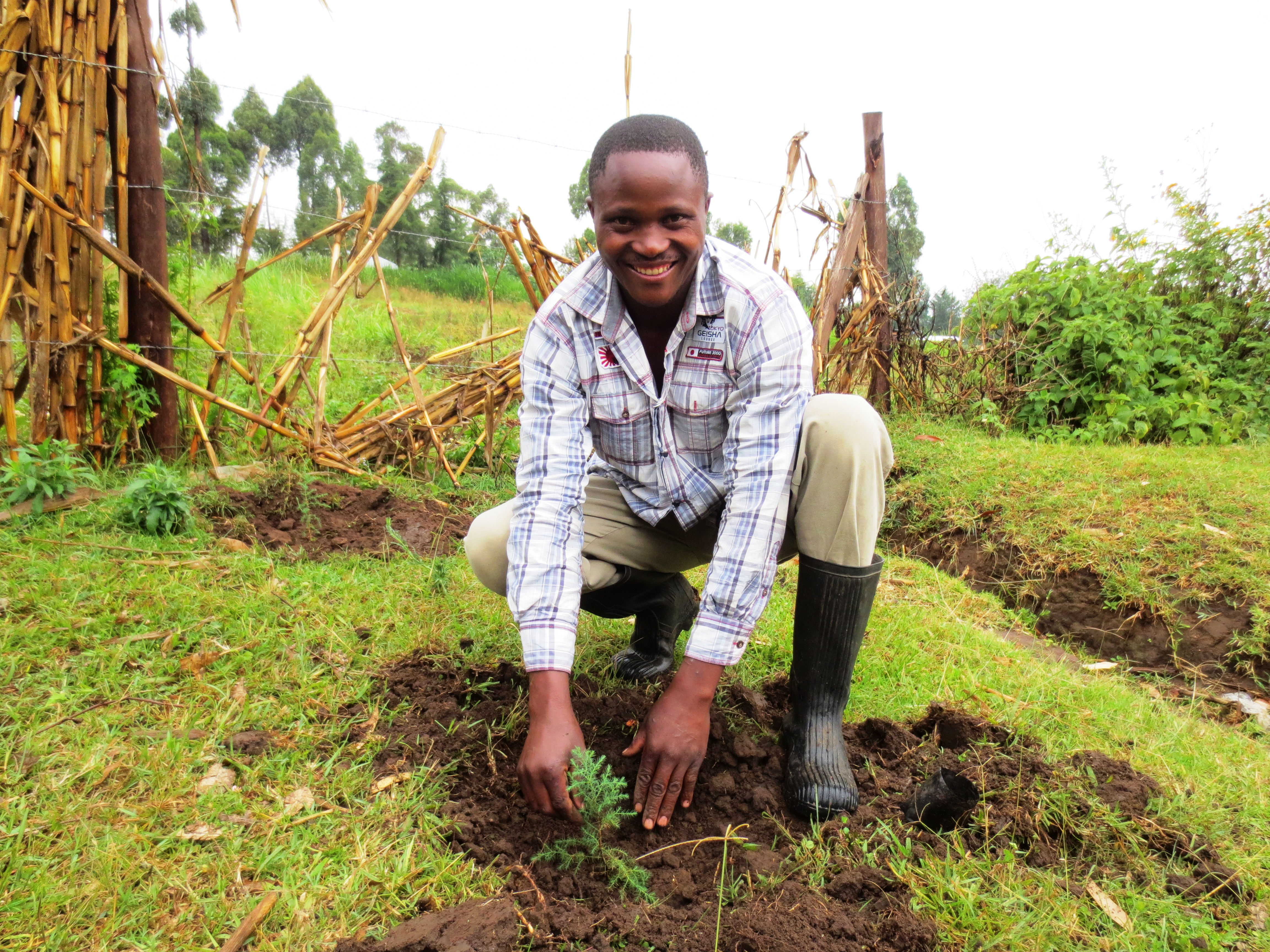Innovations Fellow Nafees Ahmed and Field Coordinator Calistus Luchetu led a focus group discussion and individual interviews with members of the Meza BSG on tree planting. Nafees shares her findings on how conservation training has a profound impact on the behavior of our business owners.
_____________________________________________________________________
Do people living in extreme poverty think of protecting the environment? Even if they do, do they have the resources and knowledge to positively contribute to the environment? The Business Savings Group (BSG) named Meza in Gidea village sheds light on the answer to these important global questions. It all started when Business Mentor Naomi Kolil trained participants of Meza BSG on protecting the environment.
A key aspect of Village Enterprise’s business training is protecting the environment. Eco-friendly business practices are woven into each training session. Conservation is also it’s own stand-alone module that was designed with the help of the Jane Goodall Institute. In this module, we train participants on businesses that benefit the environment, eco-friendly agricultural practices, and most importantly, show participants how poverty alleviation and conservation are linked—after all, 98% of our businesses rely upon the environment for profit.
After Kolil’s conservation training, everyone had something on their minds: they wanted to plant trees to support their environment. However, they wondered how they could afford to plant trees—normally considered an expensive, long-term investment.
The solution was innovative—exemplifying the entrepreneurial spirit that Village Enterprise hopes to ignite in its participants. They decided to create their own nursery. Members of the BSG banded together and contributed what little money they could on a voluntary basis. Then, they found local tree seeds at a reasonable price and selected cyprus, Tasmanian blue gum (eucalyptus globulus), water berry (syzgium cordatum), and passion fruit tree seeds. Their BSG Secretary, John Mbita Smiyu, offered a patch of his half-acre land to serve as the nursery. They grew the seeds for three months until seedlings were ready to be transplanted. Each business owner in the group paid 10 shillings (10 cents) per seedling. Most bought around twenty blue gum trees, which are known to be fast growing and yield high profits.
Still, the highlights of this initiative was not Kolil’s training, but the knowledge sharing and innovation that came straight from our business owners. In individual meetings with each business owner, it transpired that there were members of the BSG who had very little knowledge on tree planting and maintenance. However, two of the members, John Kutukhulu and Musa Wafula, had been trained in nursery maintenance and tree planting 15 years back by a local agro-forestry program. These two business owners not only retained this knowledge 15 years later, but were also eager to share it with the group. They set up the nursery and trained the BSG members on proper tree planting, watering, and organic fertilizer techniques. The rest of the group, mostly women, now feel confident that they can train others in their community.
As the rainy season commences this week in Kitale, Kenya, the nursery will again start to flourish. The BSG Secretary, John Mbita Smiyu, who looks after the nursery, says there is still high demand among the BSG for more trees and word has spread to other people in the village who have been eager to purchase trees as well.
 Business Savings Group member Douglas Omoa plants a tree in Gidea, Kenya.
Business Savings Group member Douglas Omoa plants a tree in Gidea, Kenya. Business Savings Group Secretary John Mbita Smiyu offered a patch of his land to serve as the tree nursery.
Business Savings Group Secretary John Mbita Smiyu offered a patch of his land to serve as the tree nursery.